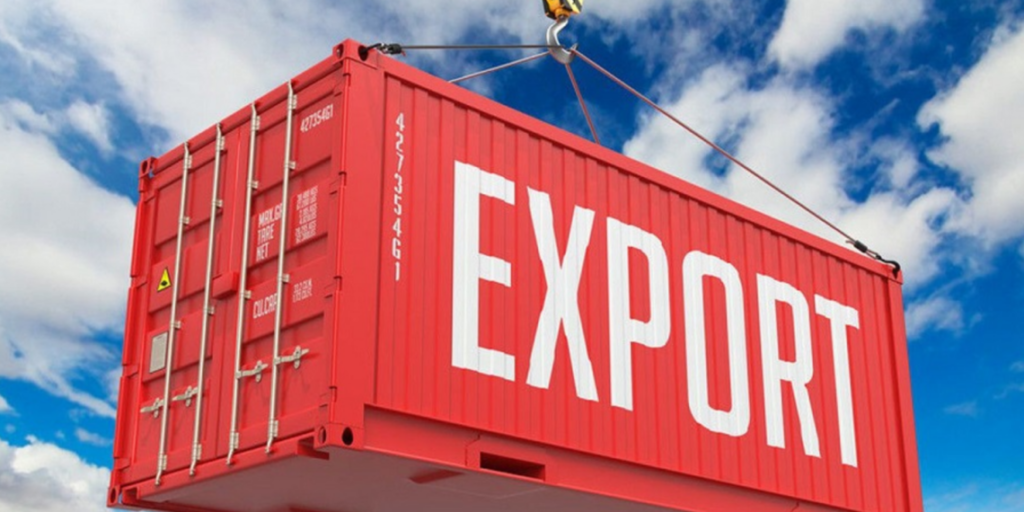Nigerian Exporters Support Trade Surplus in Q1-2025

By Oluwatosin Emmanuel OLADETAN(MBA, ACCA, PMP, FMVA, BIDA, MICBC, CNSS, SPY-SP, NIM, TRCN)
The balance of payments presents an economic inflow and outflow of funds a nation has with itself and other nations of the world.
The current account balance of a nation consists of the net exports of goods and services, net income abroad, and net current transfers.
An analysis of a nation’s current account helps to increase understanding of the nation’s economic growth initiatives, policies, programs, activities, and implementation plan.
The Nigerian Bureau of Statistics, which serves as the public data repository, released a report titled Nigeria Foreign Trade in Goods Statistics for Q1-2025 in the last few days.
This report provides the information required for end users to understand the flow and dynamism of Nigerian trade in the first quarter of 2025.
The total value of goods traded between Nigeria and other nations in Q1-2025 is ₦ 36.025 trillion, a nominal increase of 6.19% when compared with the trade value of ₦ 33.926 trillion in Q1-2024; however, when adjusted for the average exchange for the first quarter in 2024 and 2025, there is an 8.55% decline in trade from $25.899 billion in Q1-2024 to $23.684 billion in Q1-2025.
The split of the total trade in Q1-2025 can be presented as exports: 57.18%; imports: 42.82%, resulting in a trade surplus of 14.36% of total trade.
The trade surplus position of ₦5.172 trillion in Q1-2025 reflects a nominal increase of 16.84% when compared with the ₦4.427 trillion trade surplus in Q1-2024 and a 0.62% increase between $3.379 billion in Q1-2024 and $3.4 billion in Q1-2025 when translated to USD equivalent values.
Despite the USD-denominated growth being very small, it is a signal that there are opportunities for growth in the trade surplus if there are more incentives in place that will stimulate exporters to increase the value of the goods exported from Nigeria to other regions of the earth.
The president initiated the Nigeria First Policy that restricts MDAs from procuring foreign goods and services currently available within the shores of Nigeria without a waiver from the Bureau of Public Procurement.
The policy aims to stimulate local production and substitute imported goods and services for locally available produce, as the BPP will maintain and update her database with high-quality Nigerian suppliers, preventing opportunities for corruption and contract misappropriation.
Nigeria is the largest oil-producing and oil-rich country in Africa, with about 40 billion barrels of crude reserves and an optimal production capacity of 2.5 million barrels per day.
The rise in oil theft, community concerns, and threats in the Niger Delta region results in outputs below the optimal level.
Oil has over the last 60 years contributed the most to the GDP of Nigeria and bears a larger chunk of crude Nigerian exports to global trading partners.
In Q1-2025, crude oil exports accounted for 62.89% of total exports and the lowest ratio of crude oil to total exports between Q1-2020 and Q1-2025.
The ongoing war and tension between Israel and Iran will reverse the downward pressure on the prices of crude oil.
The increased uncertainties, volatilities, and alternative energy sources create a valid need to increase Nigeria’s share of non-oil exports to global partners.
The Q1-2025 trade split has crude oil at 62.89%, other oil products at 21.37%, and non-oil products at 15.38%.
The prepared foodstuffs, beverages, spirits, and vinegar sub-sector has 6.94% of total exports and the largest share of non-oil exports from Nigeria in Q1-2025. Products of chemicals and allied industry contribution to total exports is also significant at 4.22% share of total exports.
These sectors provide quick wins for willing developmental partners and the government to provide support and export enhancement programs.
These two sectors provide gateway access for Nigeria to shift from being solely dependent on the exportation of crude oil. After crude oil and other mineral products, agricultural and raw material produce are strong sectors for Nigeria from a broad classification.
As of Q1-2025, Nigeria’s share of agricultural produce is 8.27%, with Europe indicating a higher demand and interest for our agricultural produce than any part of the world, while raw material produce is 5.07%, with America indicating a higher demand and interest for Nigeria’s raw material produce than any part of the world.
Nigeria has taken bullish steps to extract other oil products for export, as Q1-2025 has a 21.73% share of other oil products to total exports, being the second highest behind the 22.50% other oil exports share to total exports achieved in Q3-2024 for the period Q1-2020 to Q1-2025.
An analysis of total goods trade in Q1-2025 shows the split is crude oil: 39.26%; other petroleum products: 22.94%; manufactured goods: 21.67%; raw material goods: 7.93%; agricultural goods: 7.61%; solid mineral goods: 0.42%; and energy goods: 0.18%.
In Q1-2025, Nigeria benefitted from trade relationships with several continents around the world, with more exposure to some regions than others.
In Q1-2025, Nigeria’s trade with the several regions of the globe is Europe ₦8.642 trillion (41.96%), Asia ₦6.754 trillion (32.79%), America ₦3.329 trillion (16.16%), Africa ₦1.854 trillion (9.00%), and Oceania ₦17.859 billion (0.09%).
The major country Nigeria exported to in Q1 2025 is India, at an export value of ₦2.842 trillion (13.80%); the Netherlands, ₦2.258 trillion (10.96%); the United States, ₦1.544 trillion (7.49%); France, ₦1.443 trillion (7.01%); Spain, ₦1.440 trillion (6.99%); Italy, ₦1.243 trillion (6.04%); Indonesia, ₦1.193 trillion (5.79%); Canada, ₦813.436 billion (3.95%); South Africa, ₦708.687 billion (3.44%); and Malaysia, ₦550.298 billion (2.67%).
There is a need for Nigerian businesses to scale current technology, capacity, and operations to reduce African imports, estimated to be at $800 billion in 2025, and further redistribute wealth among African countries.
The Nigerian economy and trade outlook are on the right path in repositioning as a net-exporting nation rather than a net-importing nation.
Nigerian exporters can further increase the value of exports if the public and private sectors can partner together to export more semi-finished and finished goods rather than raw or unprocessed raw materials.
Read Also: Nigeria Ranks 131 in World Bank’s Ease of Doing Business Index








